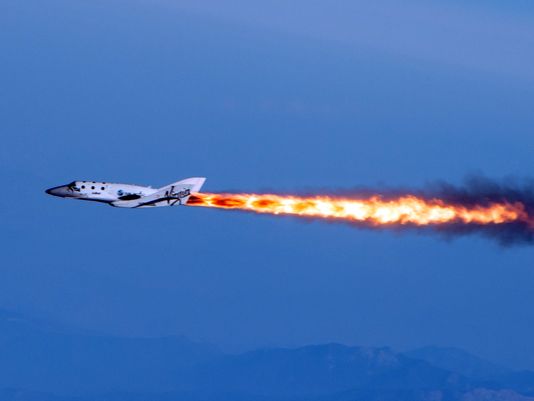
Our national governments’ collective appetite for space travel has waned considerably in the past few decades: as citizens have grown restless and dissatisfied with their elected representatives and a series of terrorist attacks and financial crises have forced leaders to focus on domestic and geopolitical problems, the final frontier has been somewhat set aside.
How fortunate for us, then, that private sector entrepreneurs such as Elon Musk and Richard Branson have stepped up to the plate, dreaming up innovative new revenue models for commercial passenger spaceflight and re-opening up the possibilities of Mars colonies, asteroid mining and all the other fanciful, far-off possibilities that scientists tell us are the best long term-answers to our energy, environmental and living space needs.
It goes without saying that there will be hiccups along the way. In October, an Antares rocket exploded on the launchpad, leaving NASA with only one supplier left–Elon Musk’s SpaceX–who could deliver provisions to the International Space Station. And then, of course, there was the tragic loss of Virgin Galactic’s SpaceShipTwo last week, which resulted in the death of co-pilot Michael Alsbury.
And yet we seem to treat privately-funded accidents remarkably differently to publicly-funded disasters. The Challenger disaster, which killed seven in 1986, provoked a lot of soul-searching, and there were many demands for answers. But the over-riding mood was one of sombre reflection and sadness at the loss of intrepid pilots and scientists.
Compare that to the witch-hunt currently playing out on the pages of (in particular) British national newspapers, which seem to be laying the blame for Michael Alsbury’s death at the feet of Virgin boss Richard Branson. Britain has always had a complicated relationship with Branson, one of its most successful entrepreneurs, but I can’t be alone in finding the front pages horribly poorly judged.
Branson stands accused, by a thousand cuts of waspish prose across the media landscape, of hubris and greed; of rushing to achieve his goals without regard for safety; of putting profits before people. Columnists are demanding to know whether or not he will attend Alsbury’s funeral. But can you imagine the director of a public space programme being hounded in quite the same way after a tragedy?
This troubles me because entrepreneurs such as Branson and Musk are the only real hope we have for the future of space exploration. Of course, being private enterprises, Virgin Galactic, SpaceX and the other private space travel companies will have slightly different motivations to NASA or the Russian Federal Space Agency, but by hounding them purely out of suspicion for the profit motive we are dooming ourselves to a world of considerably narrower horizons.
Any unnecessary loss of life is a tragedy, but what would be even more tragic would be for Richard Branson to be bullied into shuttering Virgin Galactic, or Elon Musk to bow to the haters and give up on SpaceX. I should say, there’s no sign of the latter happening any time soon. But this accident gives us a good excuse to reflect on how private enterprise is stepping in where political will is now lacking.
And it’s a good excuse to remind the public how grateful we should all be. The prospect of journeying through space has captured our collective imaginations for a hundred years. We shouldn’t throw away the future–and I don’t think it’s too extravagant to say it could, in few hundred years, represent our civilisation’s future–because we enjoy taking a pop at Richard Branson… as entertaining as that can be.
Many technology commentators–your present correspondent included–complain bitterly that the technology industry is not addressing itself to serious, or to large enough, problems. The greatest minds of their generation are locked up in co-working spaces, figuring out how to make people click on ads, instead of building hover-boards, or jet-packs or invisibility cloaks.
That’s why it’s so especially important to celebrate people who are reaching for the stars–in this case, literally. Mourn Michael Alsbury, of course. Ask questions. Demand that whatever error killed him should never happen again. But don’t demonise those few men and women inventive, intelligent and insane enough to want to put people into space–even if all they’re building is passenger jets. Because tech entrepreneurs out there solving real problems are our only hope.

COMMENTS
Please let us know if you're having issues with commenting.